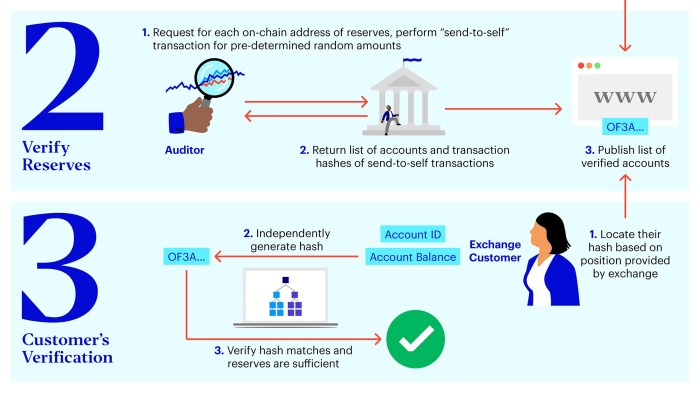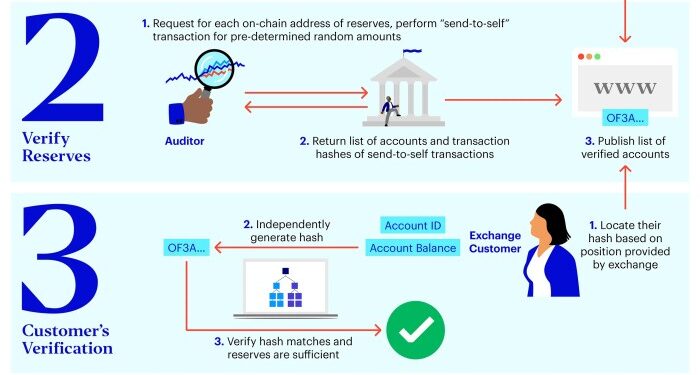How to Insure Cryptocurrency Assets Legally delves into the intricate world of cryptocurrency insurance, providing readers with valuable insights and essential information on navigating the legal landscape with ease and confidence.
In this guide, we will explore the nuances of insuring digital assets, from understanding key regulations to identifying the various types of insurance coverage available in the market.
Legal Framework for Insuring Cryptocurrency Assets
Cryptocurrency assets have gained significant popularity in recent years, prompting the need for insurance coverage to protect against potential risks. However, the legal framework surrounding the insurance of cryptocurrency assets is still evolving and poses unique challenges for insurance companies.
Current Legal Landscape
The legal landscape for insuring cryptocurrency assets varies significantly from country to country. Some jurisdictions have embraced digital currencies and have established clear regulations for their insurance, while others are still grappling with how to regulate this emerging asset class.
Insurance companies operating in this space must navigate a complex web of laws and regulations to ensure compliance.
Key Regulations Impacting Insurance of Digital Assets
Anti-money Laundering (AML) and Know Your Customer (KYC) regulations
Insurance companies must adhere to strict AML and KYC requirements when providing coverage for cryptocurrency assets to prevent illegal activities.
Capital Requirements
Some jurisdictions impose specific capital requirements on insurance companies offering coverage for digital assets to ensure financial stability.
Cybersecurity Regulations
Given the high risk of cyber threats in the cryptocurrency space, insurance companies must comply with stringent cybersecurity regulations to protect their clients' assets.
Challenges Faced by Insurance Companies
Insurance companies face several challenges when insuring cryptocurrency assets, including:
Lack of historical data
The volatile nature of cryptocurrency prices and limited historical data make it challenging for insurance companies to assess risks accurately.
Regulatory uncertainty
The evolving regulatory landscape for digital assets creates uncertainty for insurance companies, leading to compliance challenges.
Custody and security concerns
Ensuring the safe storage and custody of cryptocurrency assets is a major concern for insurance companies due to the risk of theft and hacking.
Conclusion
In conclusion, the legal framework for insuring cryptocurrency assets is complex and rapidly evolving. Insurance companies must stay abreast of regulatory changes and navigate legal challenges to provide effective coverage for digital assets.
Types of Cryptocurrency Insurance Coverage

Cryptocurrency insurance coverage is essential for safeguarding digital assets against theft, loss, or cyber attacks. There are different types of insurance options available to cater to the diverse needs of cryptocurrency holders.
Custodial vs. Non-Custodial Insurance Options
Custodial insurance involves storing digital assets with a third-party custodian, such as a cryptocurrency exchange or a wallet provider. In case of a security breach or hacking incident, the insurance policy covers the losses incurred by the custodian. On the other hand, non-custodial insurance allows individuals to self-custody their assets and obtain insurance coverage directly.
This option provides more control and security over the assets, as the policyholder maintains ownership.
Examples of Insurance Policies Tailored for Digital Assets
- BitGo: BitGo offers a comprehensive insurance policy covering digital assets held in their wallets. They have partnered with Lloyd's of London to provide up to $100 million in insurance coverage.
- Nexus Mutual: Nexus Mutual is a decentralized insurance platform that allows users to pool funds and provide coverage for smart contract failures, hacks, or other unforeseen events in the DeFi space.
- Lloyd's of London: Lloyd's of London, a renowned insurance marketplace, offers specialized insurance products for cryptocurrency businesses, including coverage for theft, fraud, and cyber attacks.
Factors to Consider When Insuring Cryptocurrency Assets
Cryptocurrency insurance is a complex and evolving field that requires careful consideration of various factors. Understanding these factors can help individuals and businesses make informed decisions when it comes to protecting their digital assets
Cost of Insuring Cryptocurrency Assets
- The cost of insuring cryptocurrency assets can vary significantly based on factors such as the value of the digital assets being insured, the level of coverage required, and the overall risk profile of the insured party.
- Insurance premiums may also be influenced by external factors such as market conditions, regulatory changes, and the track record of the insurer.
Impact of Cryptocurrency Value and Volatility
- The value and volatility of cryptocurrencies can have a direct impact on insurance coverage. Fluctuations in the value of digital assets may affect the amount of coverage needed to protect against potential losses.
- Insurers may adjust premiums based on the perceived risk associated with volatile cryptocurrency markets, leading to higher insurance costs for assets with greater price fluctuations.
Security Measures and Best Practices
- Implementing robust security measures and best practices can help reduce the risk of theft, hacking, or other security breaches that could lead to losses of cryptocurrency assets.
- Insurers may offer discounts or lower premiums to policyholders who demonstrate a commitment to security by implementing measures such as cold storage solutions, multi-factor authentication, and regular security audits.
Challenges and Risks in Insuring Cryptocurrency Assets
Insuring cryptocurrency assets comes with a unique set of challenges and risks that insurance companies need to navigate in order to provide adequate coverage in this rapidly evolving space.
Unique Challenges Faced by Insurance Companies in the Crypto Space
Insurance companies face several challenges when it comes to insuring cryptocurrency assets, including:
- The lack of regulatory clarity and oversight in the cryptocurrency industry, making it difficult to assess risks and establish standard insurance practices.
- The high level of volatility in the cryptocurrency market, which can lead to significant fluctuations in the value of insured assets.
- The complex and constantly evolving nature of cybersecurity threats in the digital asset space, requiring insurance companies to stay ahead of emerging risks.
Risks Associated with Insuring Volatile Digital Assets
Insuring volatile digital assets poses several risks for insurance companies, such as:
- The potential for large insurance payouts due to rapid price changes in cryptocurrencies, leading to financial strain on insurance providers.
- The difficulty in accurately assessing the value of cryptocurrency assets at any given time, which can impact the coverage provided to policyholders.
- The heightened risk of fraud and malicious activities in the cryptocurrency space, which can result in significant losses for insurers.
Impact of Cybersecurity Threats on Cryptocurrency Insurance
Cybersecurity threats pose a significant risk to cryptocurrency insurance, as they can lead to:
- Data breaches and theft of digital assets, resulting in substantial financial losses for both insurers and policyholders.
- Disruption of insurance services and operations, leading to delays in claims processing and customer dissatisfaction.
- Reputational damage for insurance companies in the event of a cybersecurity incident, potentially impacting their ability to attract and retain clients.
Outcome Summary

As we conclude our discussion on insuring cryptocurrency assets legally, it becomes evident that having a solid grasp of the legal framework and insurance options is crucial in safeguarding your digital investments. With the right knowledge and precautions, you can confidently protect your cryptocurrency assets in an ever-evolving market.
Top FAQs
What factors influence the cost of insuring cryptocurrency assets?
The factors that impact insurance costs include the value and volatility of cryptocurrencies, security measures implemented, and the coverage options selected.
Are there insurance policies tailored specifically for digital assets?
Yes, there are insurance policies designed specifically to cover digital assets, providing protection against various risks associated with cryptocurrency ownership.
How do insurance companies navigate legal challenges in insuring cryptocurrency?
Insurance companies navigate legal challenges by staying informed about evolving regulations, working closely with legal experts, and adapting their policies to comply with the legal framework.



